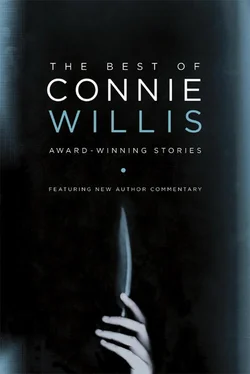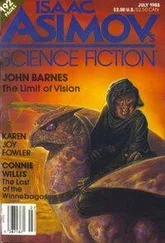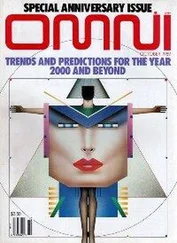THE BEST OF CONNIE WILLIS
Award-Winning Stories
INTRODUCTION

Writing an author’s introduction to a “Best of” collection is kind of problematic. If you talk too much about the stories, you give away the plot, and if you focus on the “best of” part, it looks uncomfortably like bragging—and usually is.
Telling where you got the idea for each story is usually a terrible letdown and doesn’t really explain anything. I mean, I got the idea for “The Last of the Winnebagos” from being stuck behind an RV going fifteen miles an hour up the pass to Woodland Park, and the idea for “All Seated on the Ground” from sitting in the church choir singing some Christmas carol with truly awful lyrics, but that doesn’t explain how I got from there to the story, and if I explain all the steps in between (giving away half the surprises in the story in the process), you’ll feel as duped and annoyed as you do after a magician explains how he sawed the woman in half.
Besides, I don’t know all the steps. Writers don’t really understand where their ideas come from, or how they morph into the story on the page. And often what I thought I was doing turned out not to be what was really going on at all. While you’re writing one story, your subconscious is busily writing another. Which means that to really explain the stories, I’d have to go all autobiographical and get into my childhood and the traumas thereof, which I have no intention of doing here.
It’s too bad this isn’t a theme anthology. It’s easy to write an introduction for a theme anthology. If it’s about time travel or H. G. Wells–like invasions from outer space or dragons, then you natter on about dragons—or invasions, or time travel—for a few pages, and you’re good. But only one of the stories in this collection is about a Wells-like invasion. (There’s another invasion from outer space, but the aliens don’t try to kill anybody. They don’t do anything . In fact, that’s the problem. They just stand there and look disapproving.)
There are also a couple of time-travel stories here (though only one’s about time travel in the traditional sense), there aren’t any dragon stories, and the other stories are about psychics, RVs, the Pyramids, the post office, Annette Funicello, mystery novels, Kool-Aid, tomato plants, and the footprints out in front of Grauman’s Chinese Theatre.
It’s kind of hard to detect a common theme in all that, and the settings don’t provide one, either. The stories take place in Phoenix; Egypt; the London Tube; Amherst, Massachusetts; and a mall at Christmastime—and in the past, future, afterlife, and end of the world.
About the only thing the stories have in common is that I wrote them, and even that’s apparently a bit uncertain. There was a conspiracy theory making the rounds of the Internet a while back that there were actually two Connie Willises, one who wrote the “funny stuff” and one who wrote the “sad stuff,” which I don’t understand at all.
I mean, Shakespeare wrote both comedies and tragedies (to say nothing of historical fiction, fantasy, and some pretty darn good poems) and nobody ever said his stuff was written by two different people. Although, come to think of it, they did accuse him of being someone else altogether, including Francis Bacon, Edward de Vere, and Queen Elizabeth. (And a committee, which I guess counts as two different people.) No one has claimed a committee wrote my stories yet, so that’s good.
And it is true that there’s more than one kind of story in this collection. But in writing them, I wasn’t so much following in Shakespeare’s footsteps (though the world would definitely be a better place if everybody tried to write like Shakespeare—or at least read him) as in the footsteps of some of my favorite science-fiction writers.
They didn’t stick to just one kind of story, either. Shirley Jackson wrote both chilling studies in human behavior (“The Lottery”) and hilarious ones (“One Ordinary Day, with Peanuts”). So did William Tenn, penning the savage “The Liberation of Earth,” the bleak “Down Among the Dead Men,” and the uproarious “Bernie the Faust.”
And Kit Reed wrote—and is still writing—all across the spectrum, from the terrifying (“The Wait”) to the creepy (“The Fat Farm”) to the sweet and funny (“Songs of War”).
I was first exposed to all these writers and to many more—Fredric Brown, Mildred Clingerman, Theodore Sturgeon, Zenna Henderson, James Blish, Ray Bradbury—in the Year’s Best collections edited by Judith Merril, Robert P. Mills, and Anthony Boucher, and they had an even more profound effect on me than Robert A. Heinlein, whose work I found at the same time.
To quote Mr. Heinlein, “How it happened was this way.” In one of those serendipitous moments that make you ponder how much of the course of your life depends on the vagaries of chance, I happened to see a copy of Heinlein’s Have Space Suit, Will Travel , thought it had a funny title (for you young’uns, there was a TV show in those days called Have Gun, Will Travel —and yes, we had TV back then!), and checked it out. And fell in love with the very first line: “You see, I had this space suit.”
I also fell in love with its seventeen-year-old hero (I was thirteen), his ten-year-old-girl sidekick Peewee, and the Mother Thing. And in love with the humor and the adventure and the science and the literary references. Kip’s dad is reading Jerome K. Jerome’s Three Men in a Boat in the first chapter, and Shakespeare’s The Tempest figures heavily in saving the planet. (I told you the world would be a better place if everybody read Shakespeare.)
I immediately devoured the rest of the Heinleins my library had— Time for the Stars , Tunnel in the Sky , The Star Beast , The Door into Summer , Double Star , Space Cadet —and then set out to find other stuff like them.
There was no science-fiction section in the library back in those days (they were days of dark oppression), so this was harder than it might seem. But I’d noticed that the Heinleins all had this symbol of a spaceship and an atom on the back, so I scoured the library for other books with the symbol. I found, I remember, Pebble in the Sky and The Space Merchants and Revolt on Alpha C . And the Year’s Best collections—a whole row of them.
They were a revelation to me. Here, cheek by jowl, were stories by John Collier and C. M. Kornbluth and Ray Bradbury and C. L. Moore, a kaleidoscope of stories and styles and themes, from the funny (Fredric Brown’s “Puppet Show”) to the frighteningly dystopic (E. M. Forster’s “The Machine Stops”) to the achingly sad (“Flowers for Algernon”).
A realistic story about a man walking across the moon on foot stood between a lyrical remembrance of things past and a nightmarish take on the “ good life,” and there were tales of tidal flats and amusement parks and department stores and spots in the Arizona desert where it was possible to see “a miracle of rare device.”
Stories about robots and time-travelers and aliens, and stories about the cold equations of the physical universe and the hidden costs of technological advance, about the endless difficulty of determining what a human is—and how to be one. Science fiction in all her infinite variety, spread out like a feast in front of me.
Читать дальше














